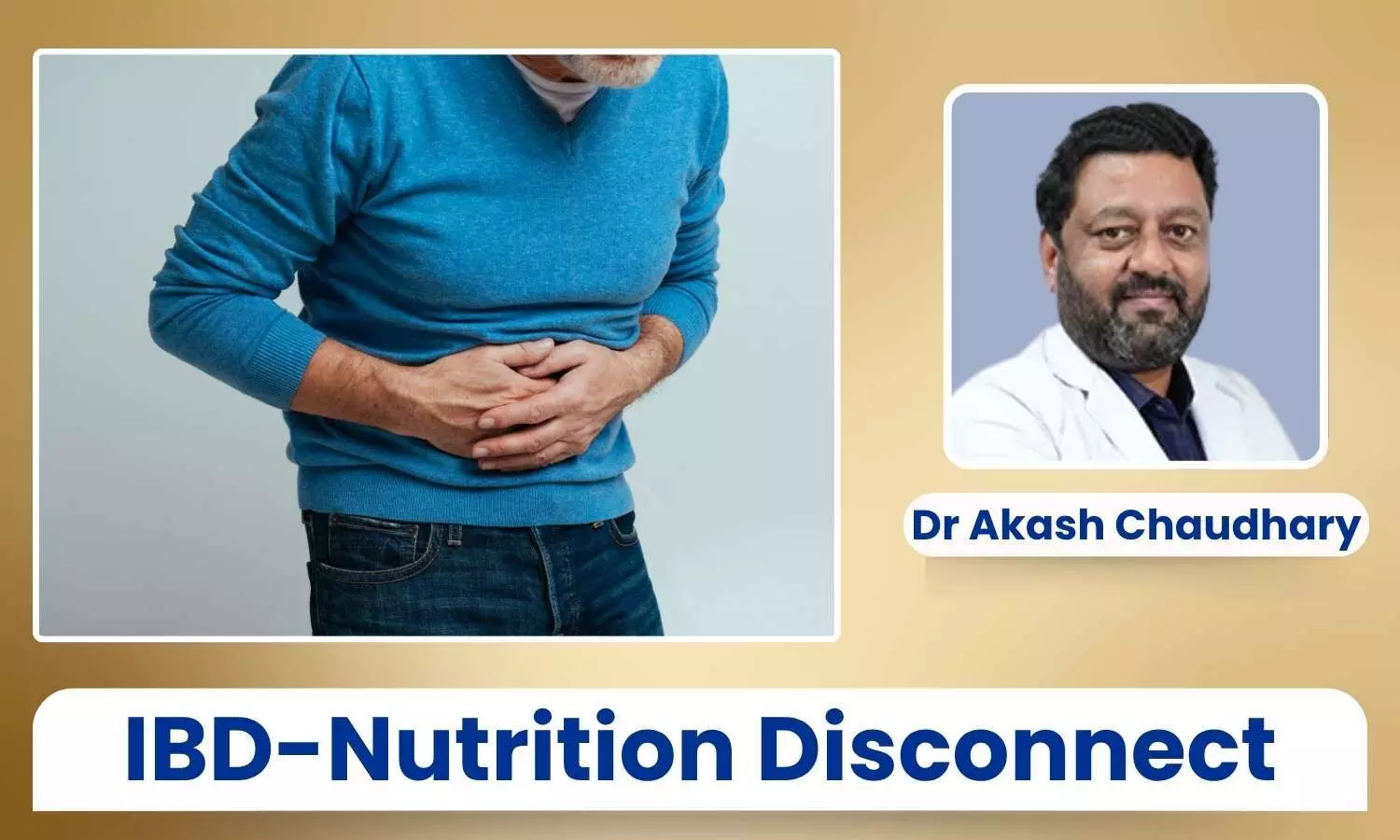IBD-Nutrition Disconnect: Why Symptom Relief Doesn’t Mean Nutrient Recovery - Dr Akash Chaudhary

For many people living with Inflammatory Bowel Disease (IBD), whether Crohn’s disease or ulcerative colitis, there is immense relief when the flare-ups subside. The abdominal pain lessens, the urgency to visit the washroom reduces, and fatigue begins to lift. It feels like the storm has passed.
But what’s often overlooked is what happens quietly beneath the surface, long after the symptoms have calmed.
In clinical practice, we’re seeing more and more patients who, despite feeling better, continue to show signs of poor nutrient absorption. The gut may have stopped protesting, but it isn’t always functioning at full capacity.
This disconnect between how patients feel and what their bodies are actually absorbing is what makes ongoing nutritional care a crucial part of IBD management, even during remission.
Feeling Fine Doesn’t Mean Functioning Fine
One of the most common misconceptions among IBD patients is that if the symptoms go away, so do the nutritional concerns. Unfortunately, this isn't always true. IBD can cause damage to the lining of the small intestine, which is where most nutrient absorption occurs.
Even when the inflammation settles, the gut’s ability to absorb vital vitamins and minerals may remain compromised, especially if strictures, resections, or scarring are involved.
Patients may unknowingly face deficiencies in iron, vitamin B12, vitamin D, calcium, and folate, to name a few. These aren’t minor shortages. They can quietly lead to anaemia, fatigue, brittle bones, neurological symptoms, and even weakened immunity, despite the patient reporting no bowel issues.
Why Micronutrients Matter More Than You Think
Micronutrients play critical roles in everything from energy production to mental clarity and immune function. In IBD, iron deficiency anaemia is one of the most frequent complications, even when bleeding has stopped.
Vitamin B12, essential for nerve health and red blood cell formation, is absorbed in the terminal ileum, a common site of inflammation in Crohn’s disease. A deficiency can cause memory issues, tingling sensations, and chronic fatigue.
Then there's vitamin D, which is required not only for bone health but also for immune system function. Despite the availability of sunlight in India, many IBD patients experience low amounts due to poor intestinal absorption.
Bone Loss: Overlooked Complication of IBD
Perhaps one of the most serious, yet least discussed, nutritional consequences of IBD is bone loss. Long-term inflammation, corticosteroid use, poor calcium intake, and vitamin D deficiency all combine to increase the risk of osteopenia and osteoporosis, conditions that may only be discovered after a fracture.
Young adults, especially women, are at particular risk. Imagine a person in their thirties suffering a hip fracture, not because of a fall, but because their bones have quietly weakened over years of undetected nutrient loss.
Case for Regular Nutritional Monitoring
Managing IBD is not just about controlling flare-ups. It is about improving overall health. That means regular nutrient screening, even during remission.
Blood tests for iron, B12, folate, and vitamin D should be performed on a regular basis, as should periodic examinations of bone mineral density, especially if steroids were used for an extended period.
A one-time nutritional assessment isn’t enough. These should be ongoing check-ins—just like how one wouldn’t stop checking blood sugar in a diabetic patient after their glucose levels stabilize for a few weeks.
Food Isn’t Always the Fix
While diet plays a big role in IBD management, food alone can’t always restore what's lost. In many circumstances, personalized supplementation is necessary.
Depending on the degree of the insufficiency, iron or vitamin B12 supplements may be given orally or intravenously. Some patients may also require the assistance of a clinical dietitian in identifying dietary intolerances, managing weight changes, or developing a specific plan that supports gut healing while minimizing symptoms.
Takeaway: Trust, But Verify
When a person with IBD starts feeling better, that’s definitely something to celebrate. But it shouldn’t mark the end of medical attention. True recovery means both symptom control and nutritional well-being.
IBD is not just a condition of the bowel. It affects the whole body, and so must the care plan.
If you're living with IBD and haven't had your nutritional status evaluated recently, or if you're still feeling unusually tired, weak, or foggy despite being in remission, it’s worth digging deeper. The signs may be subtle, but the impact isn’t.
Don’t wait for symptoms to return. Visit a specialist, and make nutritional monitoring part of your IBD routine. Your future self will thank you.


